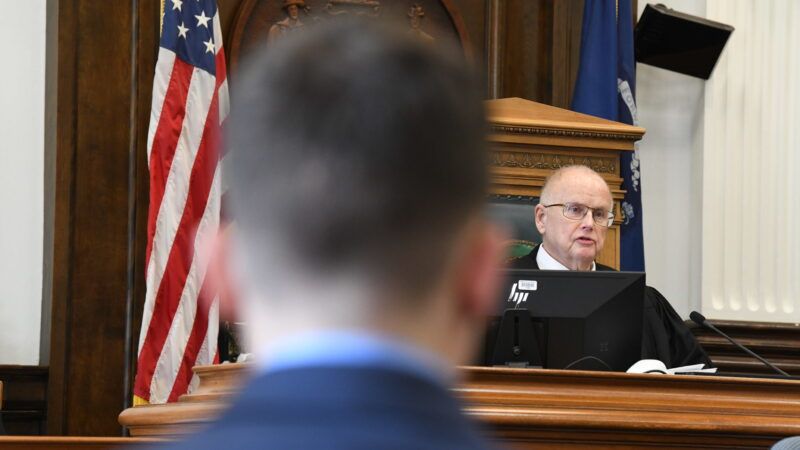Giving Kyle Rittenhouse Basic Due Process Is Not a Scandal
Such motions are "not uncommon in self-defense cases where there is a dispute over who bears responsibility."

On Tuesday, Judge Bruce Schroeder of the Kenosha County Circuit Court garnered national media attention when he ruled on how prosecutors and defense attorneys may refer to the men shot by Kyle Rittenhouse. Schroeder, who will oversee Rittenhouse's trial, ruled that prosecutors will not be able to refer to the people shot by Rittenhouse as "victims," though the defense may refer to them as "rioters" and "looters" if they can provide supporting evidence.
Rittenhouse is standing trial for shooting three people and killing two of them last summer in Kenosha, Wisconsin, following the police shooting of Jacob Blake. Citing a significant amount of civil unrest following Blake's shooting, Rittenhouse plans to plead self-defense.
CNN senior legal analyst Elie Honig called Schroeder's decision "crazy and wrong." Al Jazeera's online platform AJ+ tweeted the news and contrasted it with how "unarmed Black victims have been blamed for appearing suspicious before they were fatally shot." USA Today Deputy Opinion Editor Suzette Hackney asked, "Is fairness and justice supposed to be one-sided?"
But is Schroeder's decision really a sign of favoritism?
Andrew Fleischman, an Atlanta attorney at Ross & Pines LLC who specializes in appeals, tells Reason the request is fairly "boilerplate," and the decision to grant it is "not necessarily a sign of favor." The Kenosha News reported earlier this month that disallowing the term "victim" is Schroeder's "standard practice in criminal cases and is not unique to his handling of the Rittenhouse case." Anecdotally, other defense attorneys have weighed in that in their respective jurisdictions, it is perfectly common to disallow the term "victim." The Chicago Tribune explained that such rulings were "not uncommon in self-defense cases where there is a dispute over who bears responsibility."
There is also an uproar over Schroeder allowing the defense to refer to the alleged victims as "rioters," "looters," and "arsonists." However, as the Chicago Tribune reported, Schroeder "cautioned the defense team against using pejorative terms during opening statements, but he said they could use them in their closing arguments if the evidence suggested the men engaged in criminal acts."
As to whether certain terms should be allowed or disallowed, either in this case or in any other case, that is a different question altogether. The decision whether to allow or disallow certain evidence is purely within the trial judge's purview, contained within Rule 403 of the Federal Rules of Evidence, which states that "court may exclude relevant evidence if its probative value is substantially outweighed by a danger of…unfair prejudice."
Fleischman says that outside of "excluded evidence," the judge should allow nearly anything, and let the jury decide.
Regardless of any broader considerations about the criminal justice system, however, preserving one defendant's rights to due process does not constitute a one-sided justice system.


Show Comments (312)